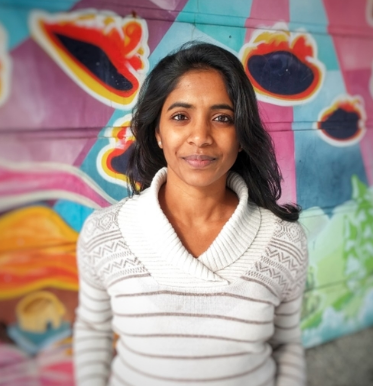What I wish I knew series: MPH Degree (Part 3)
I reached out to you all, the PH SPOT community, to ask you what you wished you had known right after you graduated from your Master of Public Health program. This is a compilation of those reflections and advice – we hope this is helpful to those starting off their public health journey.
By the time I finished my last semester of my MPH degree, I did not have a full time job lined up. At the end of the last semester, I packed up my stuff and moved back to Ontario (from Saskatchewan) and continued applying to jobs.
I applied to everything from full-time, part-time and casuals, to term and permanent positions…desperately wanting some form of validation that I was ready for the “real-world”, and was equipped to apply what I had learned in my MPH program.
I tried all sorts of methods from traditional online applications to cold calls/emails to organizations (only one gave me the opportunity to chat with them). The running total by the time I eventually did land a job was probably just around 100. Although the number might look impressively high, in hindsight, most of them were probably not relevant to what I actually wanted to do, nor were my applications relevant to the posted position.
The first job I got right after my MPH was a casual position with the Women’s College Hospital. I was a Peer Leader for a breast and cervical cancer awareness program. I delivered presentations on these topics in my native language (Tamil). It was an extremely challenging experience, but one I think back to even now. By September of 2013 (5 months since leaving Saskatchewan) I had gotten my validation – I started my “full-time permanent” job with the Public Health Agency of Canada.
Once I had graduated, I didn’t take much time to reflect about my career path. I was on autodrive because I knew what I needed to do: find full-time employment. Almost 6 years since that point in time, I am now reflecting about things I wish I had known right after I graduated my MPH program, and I share them here, along with thoughts from your peers.
To spray and pray may not be the best approach
When I graduated, and I think many others can relate with me, success was defined as securing a full time job (and perhaps even a permanent one).
Instead of finding and applying to every single job that looked remotely related to public health, I wish I had stopped to focus myself and think about what area I was interested in, and where my skills and experiences would align.
I also wished I had taken the time to understand exactly what it was I was applying to, and taken the time to ensure that the skills and experiences on my resume actually matched the job posting – it would have saved me a lot of time for sure. I mentioned in the intro that I applied to 100 jobs, but thinking back to those applications, I can assure you that my effort wasn’t anything above mediocre. I wish I had chosen positions that I really could see myself in, and subsequently put effort and thought into those ones. Instead what I had done was send in mediocre applications to 100s of organizations.
Eventually though, I must have learned…
The position I eventually did get was an application that I spent days, nearly weeks on, perfecting my resume and cover letter to match the criteria. Had I done this for all of the other applications, my success rate (defined as getting called for an interview) would have been higher.
So, the first tip for you if you’ve just graduated and are looking for employment is this: take some time to think about your career path and then make sure your resume and cover letter aligns well to the specific job you are applying to. It can get frustrating to have to apply to so many jobs (and not hear back from the organization), but do put in time and effort on your application, it’ll be worth it!
And for those in Ontario, a PH SPOT member shares the following words of support:
“Be patient. The job climate right now for public health in Ontario is the worst it has EVER been. But, it will all work out in the end.”
Think outside of the box, get creative
“Public health is something that doesn’t only happen in hospitals or health departments, at nonprofits or NGOs. It can also happen in a bank. There’s a strong connection between money and mental health. I now work for a fintech startup, and the financial services and tools we provide are designed for people in recovery from addiction, people with disabilities, and older adults with cognitive impairment. This, too, is public health.” – PH SPOT Community Member
Yes, public health is more than something that happens in health departments, and I wish I had known that right after graduation.
If you are someone who enjoys and can see yourself in multiple industries (health, finance, tech, art) and want to work in a non-traditional public health role, ask yourself where these sorts of positions would exist. Get creative!
More and more, I am seeing jobs advertised for public health grads at companies I wouldn’t have even thought of. The PH SPOT member that shared the quote above works in the finance industry; some months ago, Facebook was looking to hire someone with a public health background; and in the art industry, you may have read about Taboo Health and their recent event on our blog.
I wish I had known that public health opportunities were available outside of health departments and hospitals. When you are job searching right after graduation, think about what you enjoy, and consider looking for opportunities that are outside of the traditional path so that you can feed your interests.
It doesn’t stop here
“I wish I knew that learning never stops, that the MPH degree wasn’t the end goal. There is such value in continuing to better your professional self, not only will it make you more well-rounded in your field but your ability to impact only grows with knowledge and skills. There’s always time for learning, I wish I knew to make it a priority earlier.”
There’s more to learn, even after grad school. This is one thing you will need to embrace right after you graduate.
The matter of the fact is that you wouldn’t have learned everything you needed in your MPH program, and also that things are changing around us. An easy example to look at is technology. With so many changes around us, it’s a no brainer that as public health professionals, we too will need to learn and adapt to the changes around us, whether that is to learn new skills or softwares. By doing so, we will be ready to tackle “new” problems in the world of public health.
One great example is the plethora of false information online. Social media is a new piece of the public health puzzle. In an article last month, Dr. Tam, Canada’s chief public health officer vowed to tackle the spread of false information online, amidst the measles outbreak. What are some skills public health professionals can and should develop in this context? Communication? Marketing? Social media?
Be willing to learn….and and guess what? You will definitely set yourself up as an expert if you can gain those skills early on (before others in your organization).
Fun fact (not public health related): In the US, Congresswoman for NY-14, Alexandria Ocasio-Cortez, provided social media (specifically Twitter) training for her colleagues.
Class was in session this morning! I was thrilled to offer some insights on Twitter and social media to my. colleagues this morning.
Now Majority @WhipClyburn is teaching me what all the bells mean in the Capitol 😂 https://t.co/pEGVZqqn2g
— Alexandria Ocasio-Cortez (@AOC) January 17, 2019
Here are some resources for you to keep your learning going:
- Look for online courses that you can enrol and complete on your own time. These are often available through Universities, CDC TRAIN, PH Learn Navigator, or even through us, at PH SPOT. We also share a list of training, events, and workshops through our weekly newsletter.
- Get an inventory of skills that your colleagues have. Once you have this list, organize a lunch & learn so that you all learn from each other.
I’ll end with the quote I started this section with because it is a powerful one:
“I wish I knew that learning never stops, that the MPH degree wasn’t the end goal. There is such value in continuing to better your professional self, not only will it make you more well-rounded in your field but your ability to impact only grows with knowledge and skills. There’s always time for learning, I wish I knew to make it a priority earlier.”
Make it a priority.
To wrap this series up, I invite you to download the ebook I put together summarizing my lessons and tips that I wish I had known right after I graduated. These lessons learned have been packaged into a guide called “7 things you can do right now to advance your public health career”. Download the ebook.
This article is just the start of many conversations I hope to have with you here. Let’s keep it going in the comments! If you have already completed your MPH, which of these resonate most with you? Which do you disagree with? If you are currently in your MPH, what are your thoughts?
Looking forward to a great conversation.
This blog post was written by Sujani, in collaboration with thoughts shared by the PH SPOT community – thank you to those of you that contributed to this post.
If you missed Part 1: What I wish I knew before I started my Master of Public Health (MPH) degree, read it here.
If you missed Part 2: What I wish I knew during my Master of Public Health (MPH) program, read it here.






